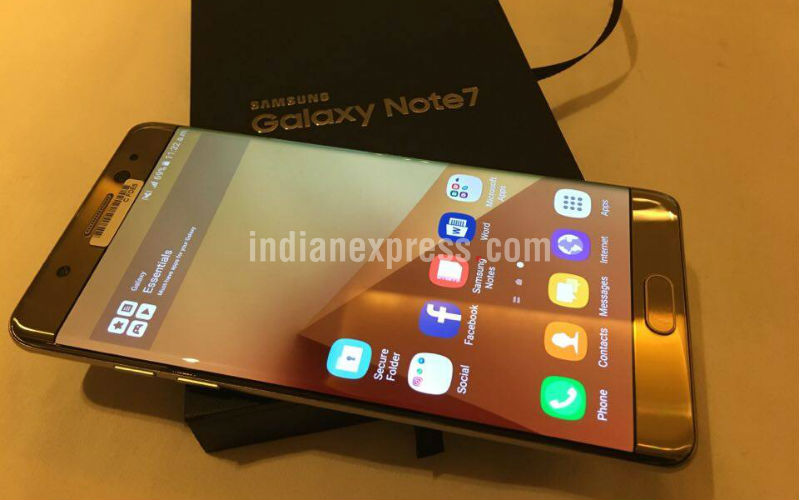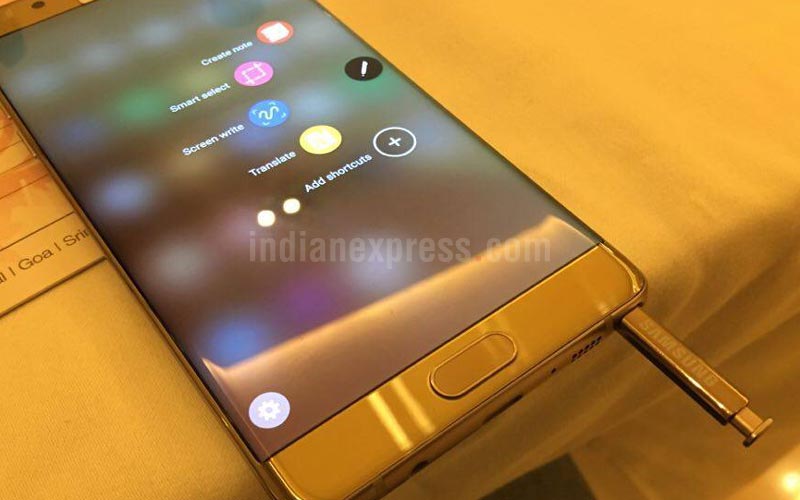The Samsung Galaxy Note 7 has pretty much had the worst debut by any smartphone in recent times. The phone is one of the best Samsung launched, and a worthy successor to the Note legacy, but a battery issue seems to be blowing this flagships’ chances of commercial success. The Korean tech giant has had to suffer the embarrassment of having to recall the phone and is faced with the daunting task of replacing it for those who are handing them over. But now the questions remains on whether people will be really keen to buy the Note 7 at all. As Samsung itself asks users to stop using the phone, we look at what the issue is and try and answer your questions.

Samsung Galaxy Note 7 was launched in August 2016 as the successor to the Note 5, and challenger for whatever Apple was going to launch later in the year. The phone had all top-end specifications and an improved stylus which is the USP of this range. However, soon after the phone started shipping there were reports that some phones were exploding or catching fire during or soon after charging. The Note 7 has a 3,500 mAh lithium-ion battery with fast charging.
Are all Samsung Galaxy Note 7 devices affected?
Samsung claims only over 30 instances of fire have been reported so far. Initially, the impression was only phones that run on the Exynos processor were affected. However, following a case in US where a Jeep caught fire from an exploding Note 7, that seems to be in doubt as the Exynos version is not sold in the US market. Now, clearly no one knows which batches of the phone are affected. Samsung is, however, sticking to the assessment that it is an issue only with the battery and not rest of the phone.
Video: Samsung Galaxy Note 7 Unboxing & Features
http://www.dailymotion.com/video/x4rbscn_samsung-galaxy-note-7-unboxing-features_tech
Koh Dong-Jin, chief of Samsung Electronics’ handset division, has been quoted as saying there was a “minor flaw in the battery manufacturing process” and “quality control standards in the production process may have been insufficient”. The batteries on the Note 7 are reportedly manufactured by Samsung SDI.
Has Samsung recalled the phones?
Yes, Samsung has recalled an estimated 2.5 million devices across the world. In the US and UK Samsung has told customers to power down the phones and return them. “In response to recently reported cases of the new Galaxy Note 7, we conducted a thorough investigation and found an isolated battery cell issue,” said a release, adding that it was “conducting a thorough inspection” with suppliers “to identify possible affected batteries”. The Korean tech giant has meanwhile stopped all sales of the phone. In the US, customers have been promised a replacement phone as early as September 19.
Is India affected?
Story continues below this ad
In India, Samsung had just started taking pre-bookings not actual shipping. However, sales have been suspended following the fiasco. Now, it remains to be seen when the device will become available in the market.
 Samsung Galaxy Note 7 has all top-end specifications and an improved stylus which is the USP of this range.
Samsung Galaxy Note 7 has all top-end specifications and an improved stylus which is the USP of this range.
Incidentally, all Note 7 models sold in India are supposed to be made here, so it should not take Samsung long to push new models into the market.
What is the issue with Samsung Galaxy Note 7 not being allowed on flights?
Anything with a tendency to catch fire easily is a huge risk on aircraft. So the US Federal Aviation Administration (FAA) and India’s Director General of Civil Aviation have banned the phone on flights in a powered on mode. In India, the phone cannot be sent via checked in baggage either. Singapore Airlines, Qantas and Virgin have issued similar notifications for passengers.
What next for Samsung Galaxy Note 7?
Story continues below this ad
Samsung is working on a new batch of devices with what will most probably be a new battery. The recall is estimated to cost the company over $1 billion and sales projections for the model have already been cut from 14 million to 10 million units, which could have a huge financial impact. However, these numbers are almost insignificant for a company as large as Samsung. The bigger worry will be for Samsung to limit the damage to its brand image.

 Samsung has recalled an estimated 2.5 million devices across the world. In the US and UK Samsung has told customers to power down the phones and return them.
Samsung has recalled an estimated 2.5 million devices across the world. In the US and UK Samsung has told customers to power down the phones and return them.
 Samsung Galaxy Note 7 has all top-end specifications and an improved stylus which is the USP of this range.
Samsung Galaxy Note 7 has all top-end specifications and an improved stylus which is the USP of this range.





